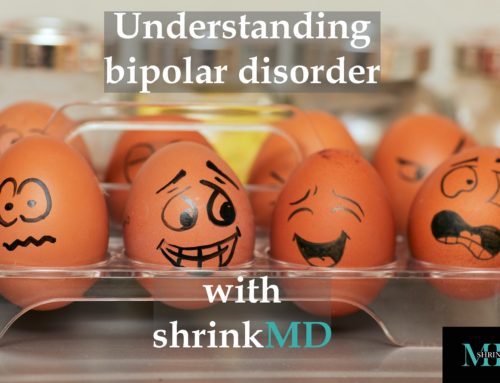The traditional psychiatric treatment focused solely on the biological dimension of mental health conditions through medications. Over time, a comprehensive and holistic approach to effective treatment known as biopsychosocial was recognized. This approach is essential for treatment to identify the numerous variables involved in an individuals’ mental health. There is so much that goes into an individual’s mental health and teasing out the variables is crucial to treatment.
At shrinkMD, we consider the biological, psychological, and social factors that contribute to mental illness to amplify our comprehensive treatment. This approach provides a more global assessment in discovering contributors to an individual’s mental health. In this blog post, we explore this treatment method and how it is used in psychiatric care at shrinkMD.
The Biopsychosocial Approach to Psychiatric Treatment
Mental illness proves to be multifaceted and complex. The evaluation and required treatment can be challenging which requires a comprehensive and holistic approach. The biopsychosocial model investigates the biological structures as well as psychological and social contributors affecting those suffering from a difficult mental health condition. This coordinated strategy incorporates an assessment of each component to ensure an appropriate diagnosis and treatment plan.
Selecting a universal assessment or treatment strategy for individuals with different needs and circumstances is not the most effective way to treat or evaluate mental illness. Our biopsychosocial method involves a comprehensive examination that dissects complex biological, social or psychological variations that might influence an individual’s emotional wellbeing. This integrative method is designed to meet every individual’s diverse needs. At shrinkMD, we prioritize taking such an exhaustive approach because we understand the multi-faceted nature of mental wellbeing.
Biological Factors
Mental health encompasses numerous biological factors that result from physiological interactions within the body. These interactions include our genetic makeup, hormones circulating throughout the body, neural pathways and chemical compounds present within the brain. The vast array of drugs available today may enact changes to these biological functions- both illicit substances and legitimately prescribed medications can alter this chemistry. In this context, evidence based psychiatric treatments serve to manage symptoms such as depression, psychosis, or anxiety by strategically altering some of these processes. While most might consider medications the only thing used in psychiatry to treat mental health, it is in fact just one spoke in the wheel to mental wellness.
Psychological Factors
A person’s psychological makeup comprises various cognitive and emotional dimensions that drive their responses to stressors in daily life. Certain factors like effective coping mechanisms can promote resilience against adversity while deficient strategies can contribute to the development or worsening of mental disorders. Psychotherapy is effective in managing a range of conditions including depression, anxiety, and posttraumatic stress disorder. Talk therapy, the traditional term for psychotherapy, helps to discern thoughts, emotions, and behaviors so as not to negatively impact mental health. I expand upon what kind of therapy a psychologist might conduct in my blog post contrasting a psychiatrist and psychologist located here.
Social Factors
Addressing social factors is imperative to understanding an individual’s environment, which includes their relationships, support network, spirituality, and socioeconomic status. The influential role these factors play on mental health has been widely recognized and requires social interventions if lacking. Social interventions can involve family therapy, group therapy, support groups or faith-based associations. These interventions assist in treating conditions such as addiction, eating disorders, depression, anxiety, and personality disorders. They also help in developing coping mechanisms for negative life events which inevitably can occur. Decompensation in mental health is likely when individuals are not equipped with strong social networks as they frequently experience insufficient levels of support and fail to establish a sense of belonging. This can result in negative repercussions on their emotional and psychological well-being.
Benefits of the Biopsychosocial Approach
The biopsychosocial approach stands out from the traditional strategies in managing mental health. A few of these benefits include:
- It recognizes mental health conditions are complex, multifaceted, and require a comprehensive or holistic approach.
- It is tailored to everyone’s unique needs and circumstances. This personalized approach helps individuals feel more engaged and invested in their treatment.
- It recognizes the importance of social interventions, such as family therapy and support groups. These interventions help build stronger support networks and provide tools and resources people need to manage their mental health condition.
All of these in combination lead to more effective treatment outcomes and can help with achieving long-term recovery.
Conclusion
At shrinkMD, a comprehensive and personalized approach is employed for psychiatric evaluation and treatment by utilizing the biopsychosocial model. This acknowledges that biological, psychological, and social factors all have a complex interplay which contributes to psychiatric conditions. By prioritizing the root causes of these conditions through research-backed treatments, we empower our patients to achieve overall wellness. Our team of expert clinicians remains committed to staying up to date with the latest research findings and treatment options to fulfill this goal. We collaborate with each patient on an individual basis so that they receive tailor-made treatment plans for maximum effectiveness.
If you look at the picture on this post, this dog’s boundless energy and joy is a reminder that good mental health is possible. At shrinkMD, we use the biopsychosocial approach to treatment. This is to address all aspects of your well-being and help you experience life to the fullest. If you or a loved one is struggling with a psychiatric condition, we invite you to contact shrinkMD to learn more about how we can help.
If you would like to read more about the biopsychosocial approach to treatment, refer to the NIH article here.
This or any information on our website is for educational purposes only. It is not intended to diagnose, treat cure, or prevent any disease or illness. You should always talk to a licensed professional for any questions, concerns, or treatment.







Leave A Comment